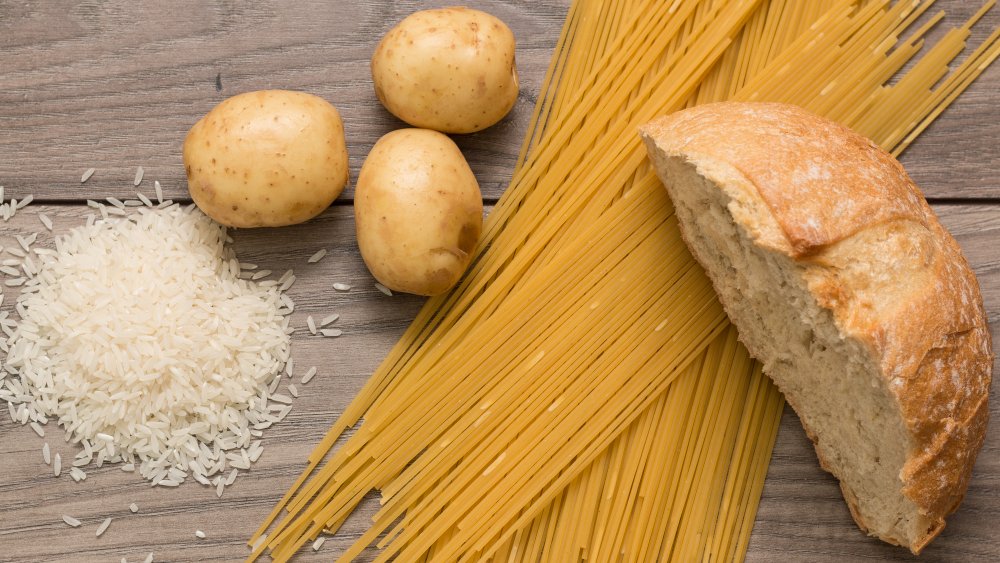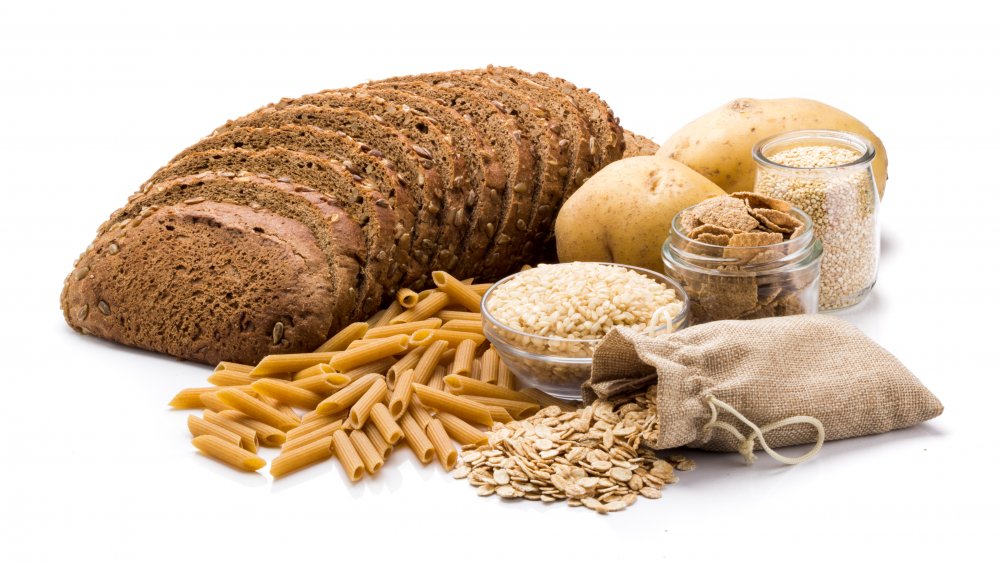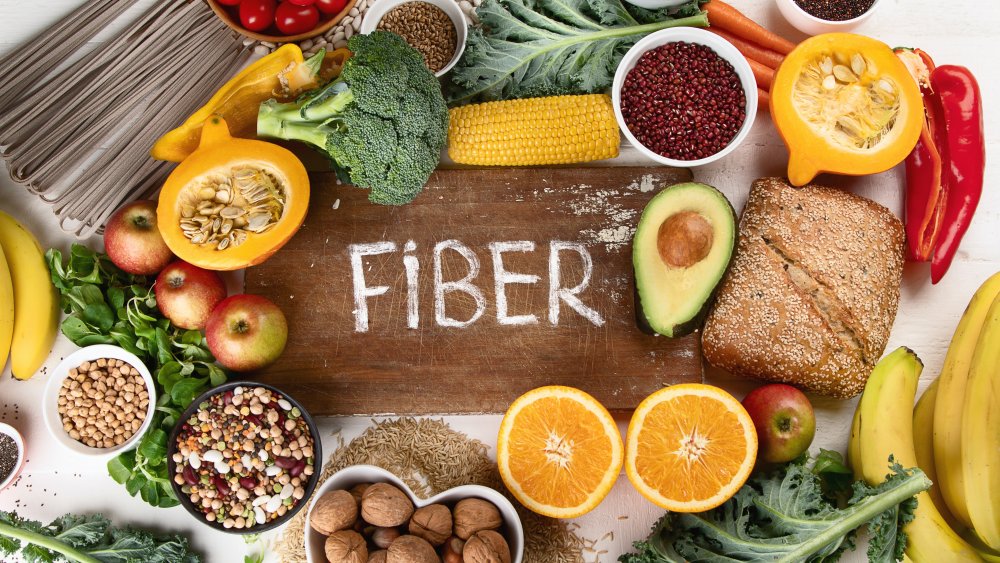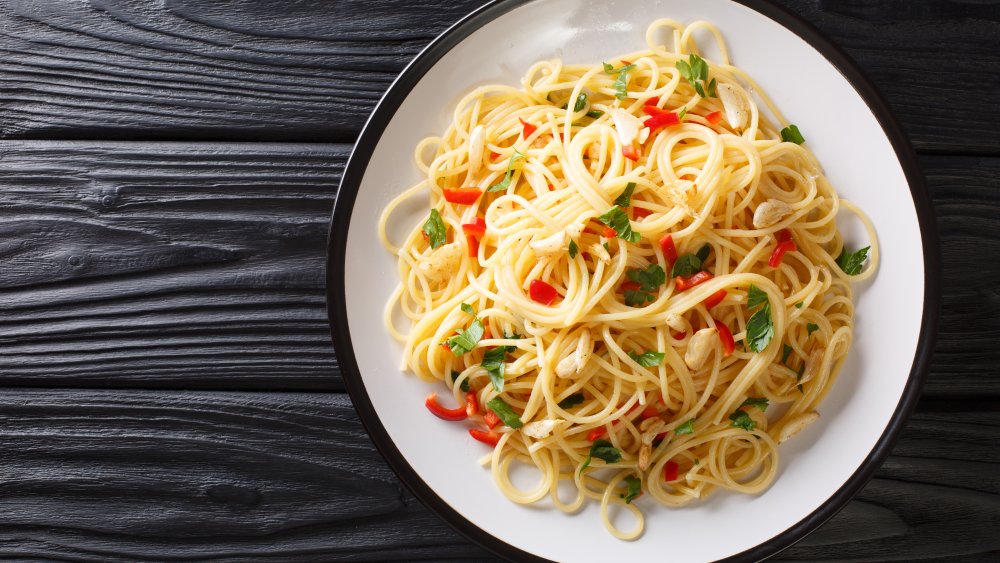Are White Carbs Really As Bad As You Think?
When people catch the whole "healthy eating bug" badly enough that they start to espouse their dietary modifications with the zeal of a religious convert, one of the things they tend to boast of is a "zero tolerance" attitude towards certain demonized food elements. Public Enemy Number One on the diet front has, over recent years, been the much-maligned carbohydrate, even though in reality drastic carb-reducing diets really aren't all that good for you. Even those that don't banish all carbohydrates from their fridges and pantries seem to have fallen prey to the notion that darker-colored breads, rice, pasta, are inherently better for you than their paler counterparts.
Well, Insider recently spoke to not one but three different dietitians to get their opinion on the white vs brown carb issue — and guess what? One more diet bubble has burst. While in some cases whole-grain carbs can offer a slight advantage over more processed, lighter-colored versions, it turns out that the difference isn't nearly as significant as you may have thought.
Just because a food's brown doesn't mean it's better
As New York dietitian Eling Tsai, MPH, RD, told Insider, "I always hesitate to use the blanket term 'better' when comparing foods, because by labeling a food as 'worse' or 'better,' we are fueling fear around food." Taking bread as an example, both brown and white breads have a similar amount of calories, although dietitian Ro Huntriss reveals, "Breads containing nuts and seeds can be higher in calories."
While brown bread does tend to offer more vitamins and minerals due to the fact that wheat flour still contains the bran and wheat germ, in some cases (particularly in the UK, where it is actually required by law), white breads will be fortified with added nutrients that can more than make up for the deficit. Huntriss points out that "bread of any kind significantly contributes to the intake of important nutrients within the diet." Fitness Chef Graeme Tomlinson concurs, adding, "In terms of energy, there is no difference between white or brown bread" (via Instagram).
Brown carbs do offer (slightly) more fiber
The main advantage that darker-hued carbs hold is that they are higher in fiber, but not by a lot. 100 grams of brown rice offers 2.1 grams of fiber, whereas 100 grams of white rice has 1.3 grams. (Not to mention, brown rice can be problematic due to the higher levels of arsenic it can contain.) Whole wheat pasta, likewise, offers more fiber (7 grams as opposed to 3, according to Bicycling).
Sure, fiber is important, and you should be consuming about 25 grams per day if you're a woman or 38 grams if you're a man, Fiber lowers your bad cholesterol, helps your blood sugar levels to stay level, and also facilitates pooping (which is why prunes are touted as a cure for constipation). Still, there are plenty of other ways to add fiber to your diet (such as snacking on the aforementioned prunes). What's more, more fiber isn't always better. If you have gut issues and find that fiber triggers certain unpleasant symptoms, then you might actually want to pick lower-fiber (white) carbs.
White carbs often just taste better
So why do we even have white carbs, anyway, if refining them makes for a more complex process resulting in a less "natural" product? Well, because many of us just prefer the taste and texture. Swapping out white for wheat flour will often result in a completely different tasting product than you're used to (unless, of course, you've always eaten the whole-grain foods and prefer them over their less-complex counterparts). Luckily, as long as we can practice moderation in our eating habits such as, say, eating a slice of bread instead of half a loaf and also going easy on the butter, there's no reason we need to adopt an all brown carb diet.
If there's one thing all of the dieticians agreed upon, it's that carbs, even white ones, are not some kind of diet monster that must be avoided at all costs. In fact, carbs should be an important part of your everyday diet — and if you happen to prefer the white ones, they all say that's perfectly ok. As New York-based dietitian Shana Spence MS, RDN, CN, puts it, "White foods don't equal unhealthy," going on to explain, "You shouldn't feel obligated to eat foods you don't like."




